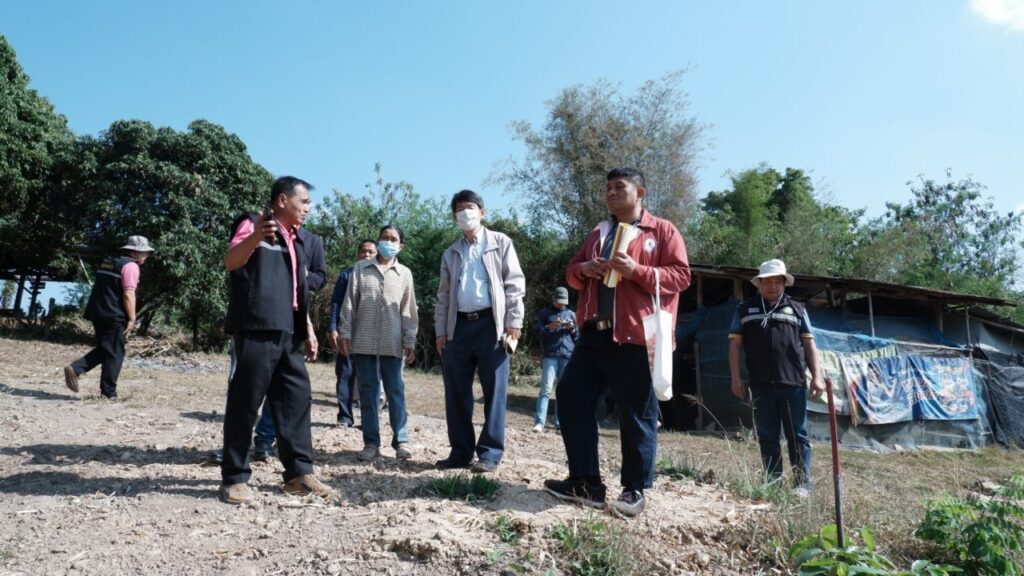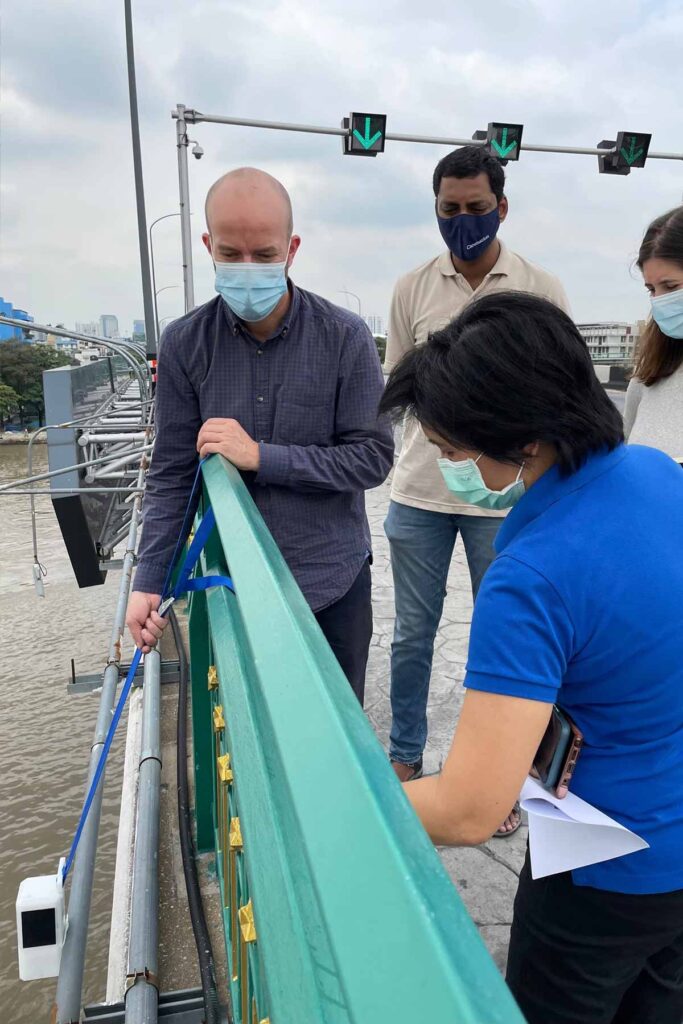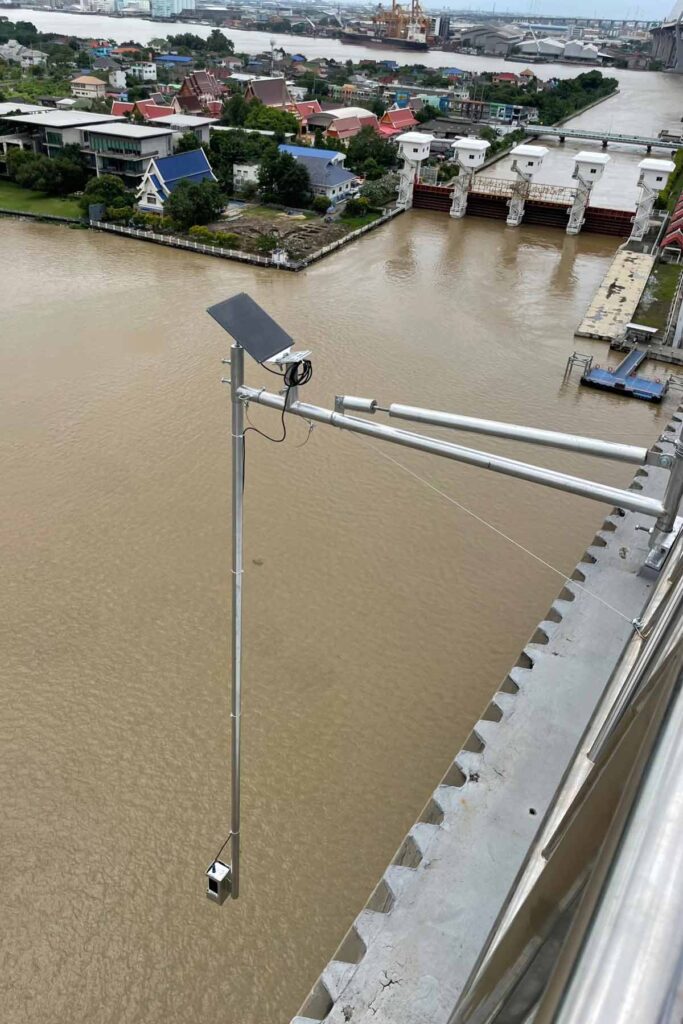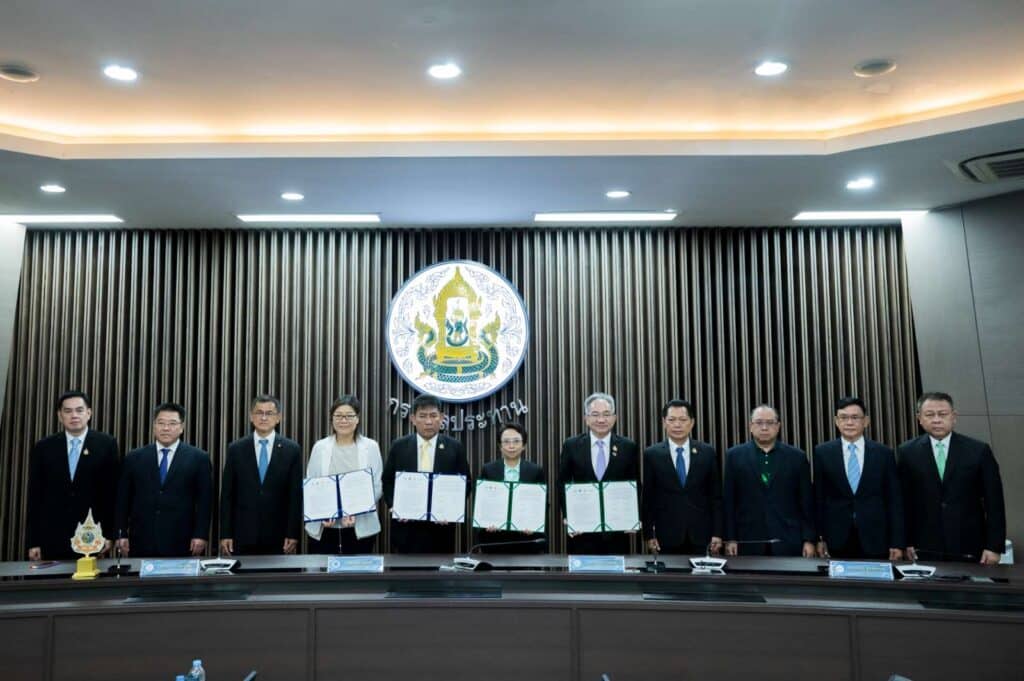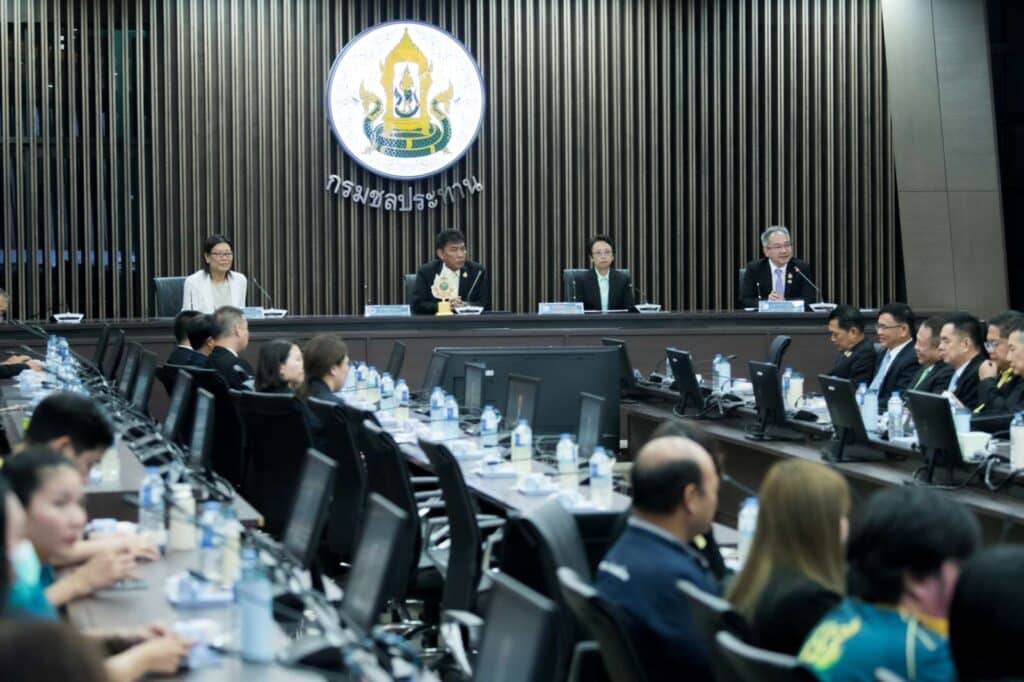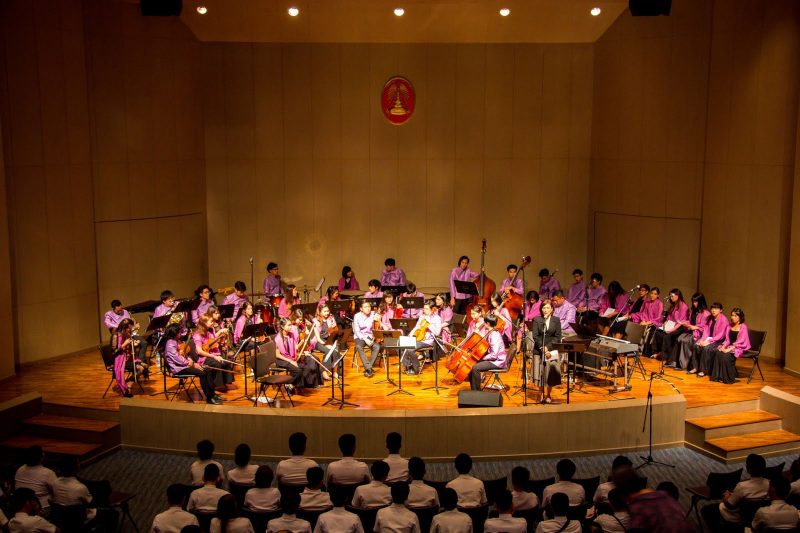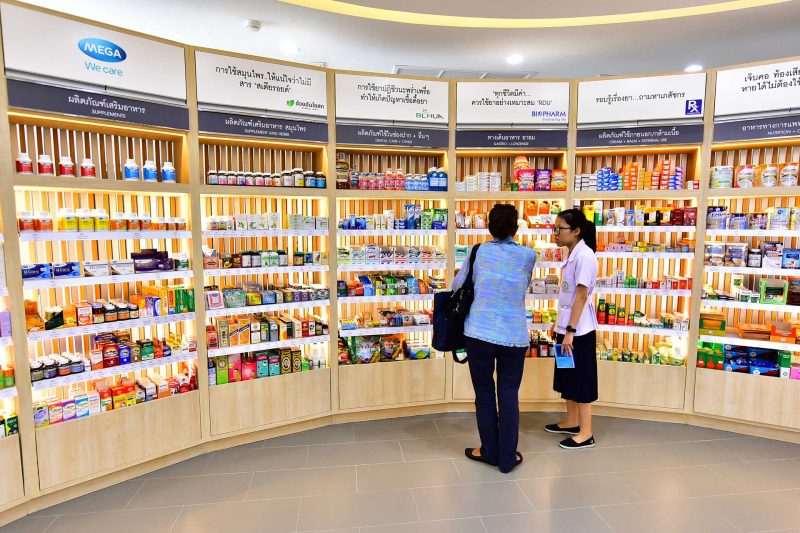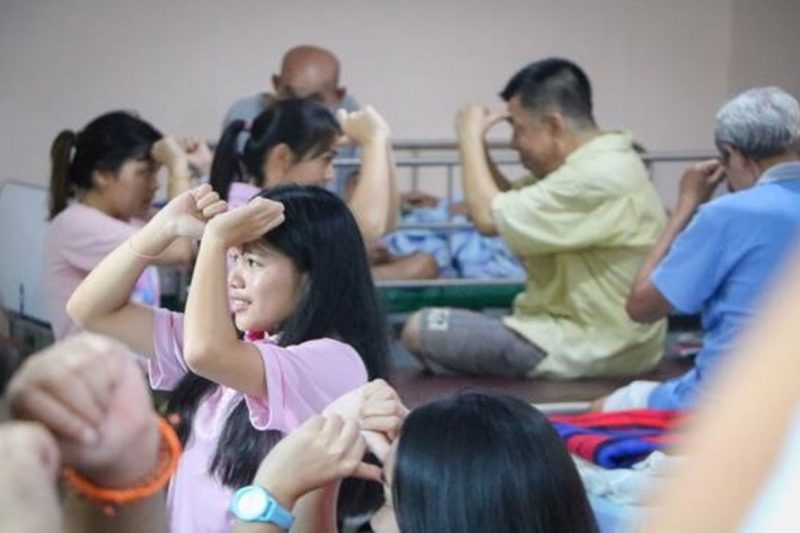Chulalongkorn University’s Role in Advancing Water Security through Local, Regional, National, and Global Partnerships 2024–2025
Chulalongkorn University plays a key role in promoting water security through collaborations with government agencies at local, regional, national, and global levels. The university focuses on research, technological development, and sustainable water resource management. These initiatives aim to address issues such as flooding, drought, and water quality, while supporting policy-making and practical measures tailored to the specific needs of each community.
Examples of projects and initiatives during 2024–2025
Chulalongkorn University Enhances Local Water Management through GIS Innovation in Nan Province
On January 9–10, 2024, Assoc. Prof. Dr. Sucharit Koontanakulvong, from the Department of Water Resources Engineering, Faculty of Engineering, Chulalongkorn University, in his capacity as Chair of the Strategic Research Program on Water Management (funded by the National Research Council of Thailand and administered by Chulalongkorn University), conducted a field visit to monitor the development of a Geographic Information System (GIS) for sub-district-level water management in Na Sao and Bo Suak Subdistrict Administrative Organizations (SAOs), Mueang District, Nan Province.
The project includes creating local water maps that document existing infrastructures, analyze water balance, shortages, and flood risks, and provide essential data for developing local and provincial water management plans and operations. In addition, the project implements practical solutions such as constructing temporary earth–cement check dams to store stream water, installing solar-powered water pumping systems, and promoting alternative agricultural practices during the dry season, such as growing watermelon seeds for additional income after the rice harvest. These activities are jointly implemented by the School of Agricultural Resources, Chulalongkorn University.
Furthermore, the team presented research findings on the development of an Integrated Provincial Water Management Master Plan, outlining the objectives, current status, risk assessments, and key results. They also shared GIS-based water resource data collected from participating local administrative organizations with the Nan Provincial Subcommittee on Water Resources, as part of the collaborative effort between Chulalongkorn University and Khon Kaen University to draft the Nan Provincial Master Water Plan (2023–2024).
[ https://www.eng.chula.ac.th/th/45217 ]
Chulalongkorn University Partners Globally to Strengthen Water Security through AI and Waste Management Innovation
Chulalongkorn University, through its Faculty of Science and the Aquatic Resources Research Institute, has joined hands with The Ocean Cleanup—a world-renowned non-profit organization from the Netherlands—and Thailand’s Department of Marine and Coastal Resources (DMCR) to tackle the persistent problem of plastic waste in Thailand’s waterways. This collaboration represents a concrete effort that connects local, national, and global partners in advancing water security and sustainable environmental management.
The project, carried out between 2021–2024 in Bangkok, focuses on the Chao Phraya River, one of Thailand’s most vital waterways. Using AI-powered camera systems and solar-powered waste interceptors, researchers continuously monitor and analyze the volume, type, and movement of waste flowing through key points of the river—specifically under the King Pinklao Bridge, Arun Amarin Bridge, and Bhumibol Bridge. The technology, developed in collaboration with The Ocean Cleanup, enables real-time data collection every 15 minutes, allowing for precise assessment of waste flow and interception efficiency.
Led by Professor Dr. Suchana Chavanich, a marine science expert from Chulalongkorn University, the research team aims not only to measure and reduce waste entering the ocean but also to provide scientific data that can guide national waste management policies. Early results reveal that the solar-powered Interceptor can collect up to 6–7 tons of waste every few days, significantly reducing the amount of plastic that would otherwise reach the sea.
This joint initiative demonstrates how academic expertise, government collaboration, and international innovation can unite to protect marine ecosystems, mitigate pollution, and support Thailand’s long-term water security. The project’s findings will serve as a critical database for the DMCR and related agencies to design evidence-based waste management strategies—from identifying high-dumping zones to strengthening community-level waste reduction efforts.
By bridging partnerships from local communities to global organizations, Chulalongkorn University reaffirms its leadership in promoting sustainable development and addressing cross-border environmental challenges, proving that safeguarding water resources is not only a national mission but a shared global responsibility.
[ https://www.chula.ac.th/en/highlight/246496/ ]
Chulalongkorn University Joins Forces with Government Agencies to Develop Sustainable Water Quality Management
On 6 August 2025, at the Royal Irrigation Department, Samsen, Bangkok, Chulalongkorn University signed a Memorandum of Understanding (MOU) with three government agencies: the National Science and Technology Development Agency (NSTDA), the Royal Irrigation Department, and the Pollution Control Department. The collaboration, under the project “Enhancing Thailand’s Capacity for Water Quality Management and Contaminant Control,” aims to develop knowledge and technology for managing water quality and emerging contaminants, such as PFAS and heavy metals, which are becoming global concerns affecting the country’s water security.
In this signing, Chulalongkorn University, represented by Associate Professor Dr.Aksara Putthividhya, Faculty of Engineering, Department of Water Resources Engineering, played a key role in integrating academic knowledge and research with government agencies to develop preventive and corrective measures for sustainable water quality management, while promoting community participation at the local level. This collaboration highlights Chulalongkorn University’s role as a leading institution in water resources and environmental engineering and underscores its integrated efforts with national and international partners to address complex water and environmental challenges.
Moreover, the cooperation covers the development of technologies for detecting and treating water contaminants, knowledge transfer, personnel capacity building, and research network development both domestically and internationally. This initiative strengthens a long-term, effective, and sustainable water resource management system. It represents an important step for Chulalongkorn University in collaborating with government agencies and global academic partners to drive Thailand toward sustainable water security and environmental protection.
[ https://www.nstda.or.th/home/news_post/mou-water-quality-20250806/ ]
By
- Faculty of Engineering, Chulalongkorn University
- School of Agricultural Resources, Chulalongkorn University
- Faculty of Science, Chulalongkorn University
- Aquatic Resources Research Institute, Chulalongkorn University
Related SDGs
Others
Enjoy Music at Chula
Thai and Western, traditional and contemporary offerings find a large and enthusiastic audience
Osotsala a Model Community Pharmacy
Pharmacists nationwide being recognised for the important role they play in the healthcare system
Sports Science for the Community
Volunteers bring knowledge about effective exercise programs to young and old alike

